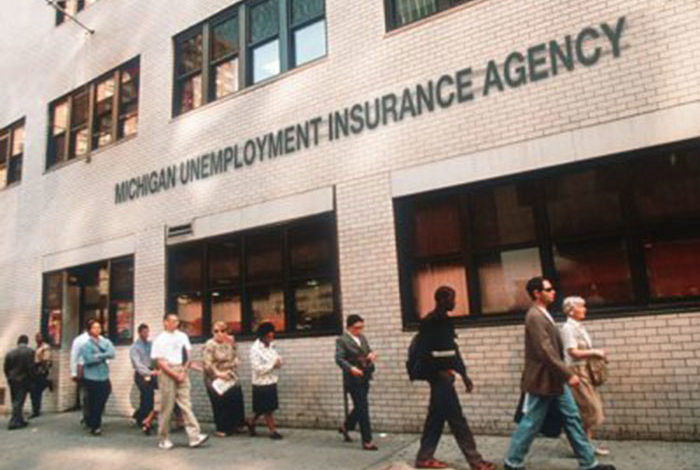LANSING — Michigan residents who have been receiving federal unemployment benefits will see all of those programs expire soon, but the state says it is still going to offer resources for those seeking employment.
The benefits provided through the Coronavirus Aid, Relief, and Economic Security (CARES) Act and American Rescue Plan Act (ARPA) are set to expire on Saturday, Sept. 4.
Despite these programs ending, the state will still be offering several programs and services of its own to assist people in their search for employment or other needs.
Benefits that were approved by Congress through the Pandemic Unemployment Assistance (PUA), Pandemic Emergency Unemployment Compensation (PEUC), Pandemic Unemployment Compensation (PUC) and Mixed Earners Unemployment Compensation (MEUC) are all set to expire Saturday, Sept. 4.
The PUA provides benefits to workers who are not ordinarily eligible for unemployment benefits, such as self-employed, independent contractors and gig economy workers.
The PEUC had allowed for up to 53 weeks of additional benefits to those who had exhausted their regular state claim.
We want to make sure Michiganders who have been receiving these temporary benefits are aware of other resources available to help them get back on their feet and find new employment opportunities. — Liza Estlund Olson, acting director of the Michigan Unemployment Insurance Agency
The PUC allowed an additional $300 per week to anyone receiving regular state or federal unemployment benefits. While regular Unemployment Insurance (UI) benefits will continue to be paid, the additional $300 PUC will be ending for those on regular UI.
The MEUC provided an additional $100 per week to claimants who had earned at least $5,000 in net self-employment income.
The CARES Act was implemented in April 2020 at the onset of the COVID-19 pandemic and the ARPA had helped expand on those benefits.
Since March 15, 2020, more than 2.4 million Michiganders have received over $38 billion in unemployment benefits.
“These federal programs provided much needed financial relief to those who experienced job losses as a result of the pandemic,” Liza Estlund Olson, acting director of the Michigan Unemployment Insurance Agency (UIA), said. “We want to make sure Michiganders who have been receiving these temporary benefits are aware of other resources available to help them get back on their feet and find new employment opportunities.”
The Sept. 4 expiration date also applies for people who show a benefit balance on their claims. Anyone waiting on eligibility determination of any of the federal programs who receives the determination after Sept. 4 will be paid all funds for which they are eligible and those individuals are encouraged to certify through Sept. 4.
Benefit recipients are also encouraged to continue to monitor their MiWAM accounts and check for emails from the UIA in case there is further correspondence about their cases as key information will be shared about deadlines to protest or make an appeal.
Claimants should have also received a new debit card from U.S. Bank by Aug. 25 to replace the Bank of America card that they had been using.
After Aug. 25, any new money received will be posted to the U.S. Bank debit card, but claimants have until Nov. 1 to access the money that has been posted to their Bank of America card.
Claimants are asked to not discard their new U.S. Bank card or their Bank of America card in case they need to be referenced at a later date.
Any claimants who are in the protest or adjudications process will continue even if such issues are not resolved by Sept. 4 and benefits will be paid to claimants who are determined to be eligible.
Those who had been receiving federal pandemic unemployment assistance are urged to take part in the job search, training and assistance programs that are available through various state agencies.
“There are numerous free resources and programs available to support individuals in taking their next steps,” said Stephanie Beckhorn, director of the Michigan Department of Labor and Economic Opportunity’s Office of Employment and Training. “Whether they want to conduct a job search, explore new career pathways or discover educational or training programs, there are many opportunities they can pursue.”
The additional programs offered by the state include the Pure Michigan Talent Connect at www.MITalent.org, which is a free job search resource that lists more than 90,000 jobs currently available in the state and the Michigan Return to Work Playbook, an online portal that features job readiness and specific resources to support specific individuals, career exploration, resume assistance, interview skills, classroom and on-the-job-training, and virtual and in-person job fairs.
For any other information, residents are encouraged to visit www.michigan.gov/UIA.






Leave a Reply